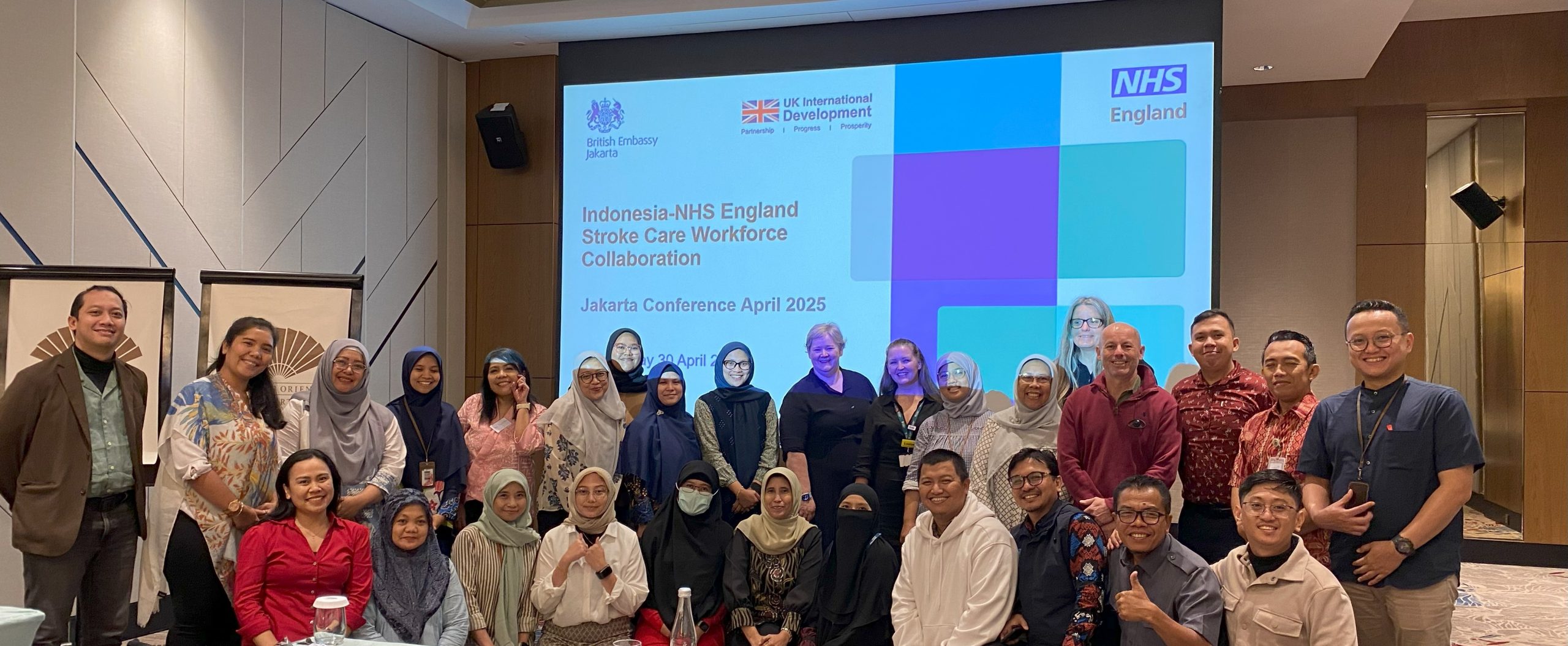
Indonesia – NHS England Stroke Care Workforce Collaboration Conference April 2025
Introduction
The Indonesia-NHS England Stroke Care Workforce Collaboration aimed to foster improvements to stroke care in Indonesia by supporting developments in the health workforce and service system design. The aim was to accomplish this through collaboration with UK and Indonesian specialists and stakeholders to strengthen approaches to stroke care delivery and management, including the training and education of the workforce as well as enhancing Stroke Care protocols and guidelines through a co-created programme using knowledge exchange, implementation support and strategic advice.
A full report on the collaboration is available below, or read this page for a brief overview.
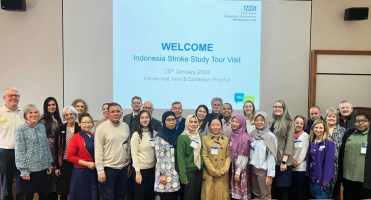
Feedback from Indonesian stakeholders highlighted the programme’s value, describing it as “invaluable and will undoubtedly contribute significantly to our ongoing efforts in healthcare”.
UK Study Tour January 2024
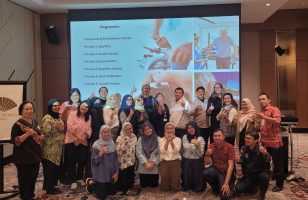
One participant added that “Everything provided by NHS has been very beneficial, and I will make sure to pass on all the knowledge shared to others, especially fellow health workers, by building a strong and effective stroke prevention team”
Rehabilitation Training April 2025
Background
NHS England were commissioned by the British Embassy in Jakarta to develop the Indonesia – NHS England Stroke Care Workforce Collaboration for a two-year period starting in April 2023. This collaboration delivered a programme of work focused on stroke care service design, workforce, training and education in Indonesia.
Stroke Care was identified as the area for collaboration as it is a priority clinical area for both countries. Stroke is a major cause of death and disability in Indonesia. The condition continues to be a major killer and cause of disability in the country. It is the leading cause of death over age 5 (accounting for about 15% of deaths). Stroke is the 3rd largest area of spend from the national insurance system. In England, Stroke is the largest source of adult neurological disability and the 4th largest cause of death. However, mortality from stroke has almost halved over the last 20 years; driven by organised stroke unit care, research driven improvements in therapies.
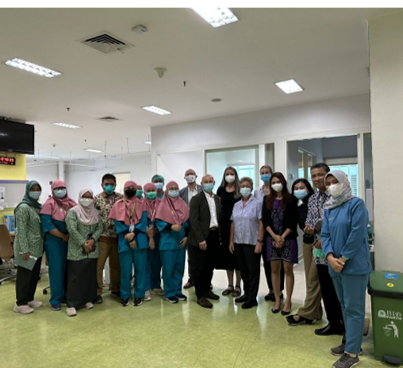
Project Background
Overview of Collaboration Activities
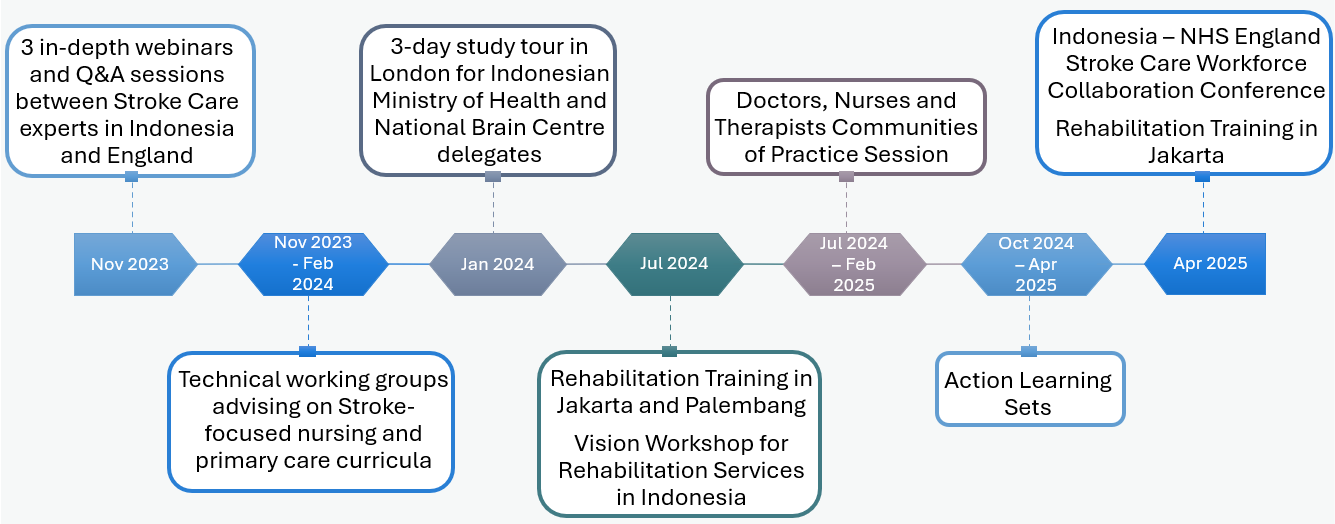
NHS England are drawing on the experience in stroke care and workforce, training and education activity in England more broadly, considering both successes and challenges, to provide Indonesia with relevant expert input on how it can use workforce development to improve Stroke outcomes in Indonesia, which will result in a reduction in death and disability.
Knowledge Exchange
- Communities of Practice provided knowledge sharing across the following topics:
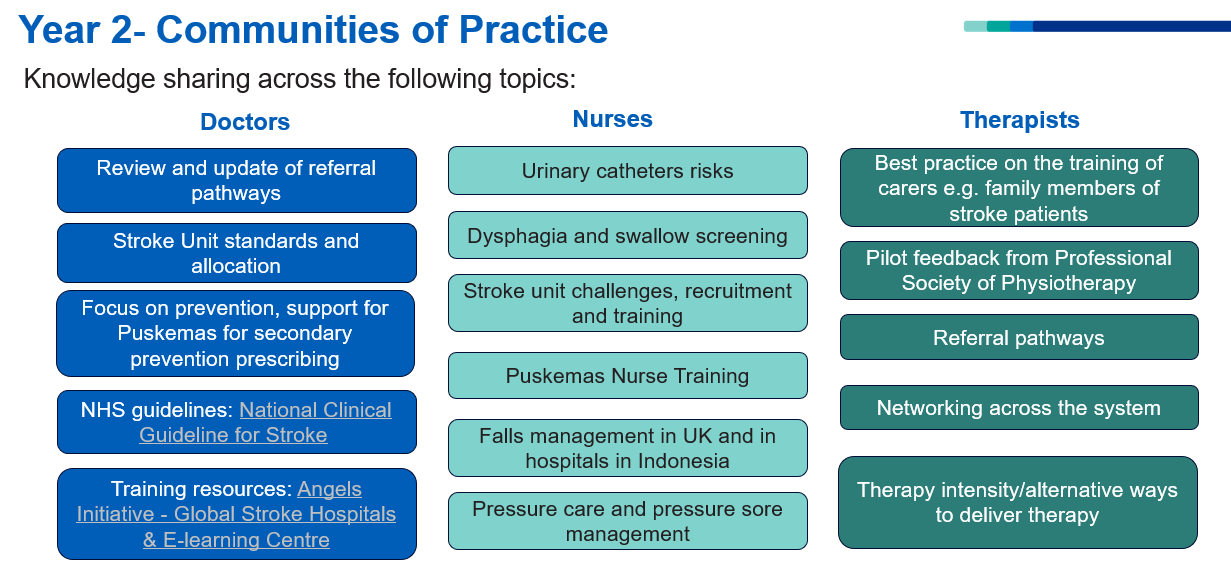
Indonesia – NHS England Stroke Care Workforce Collaboration Conference April 2025
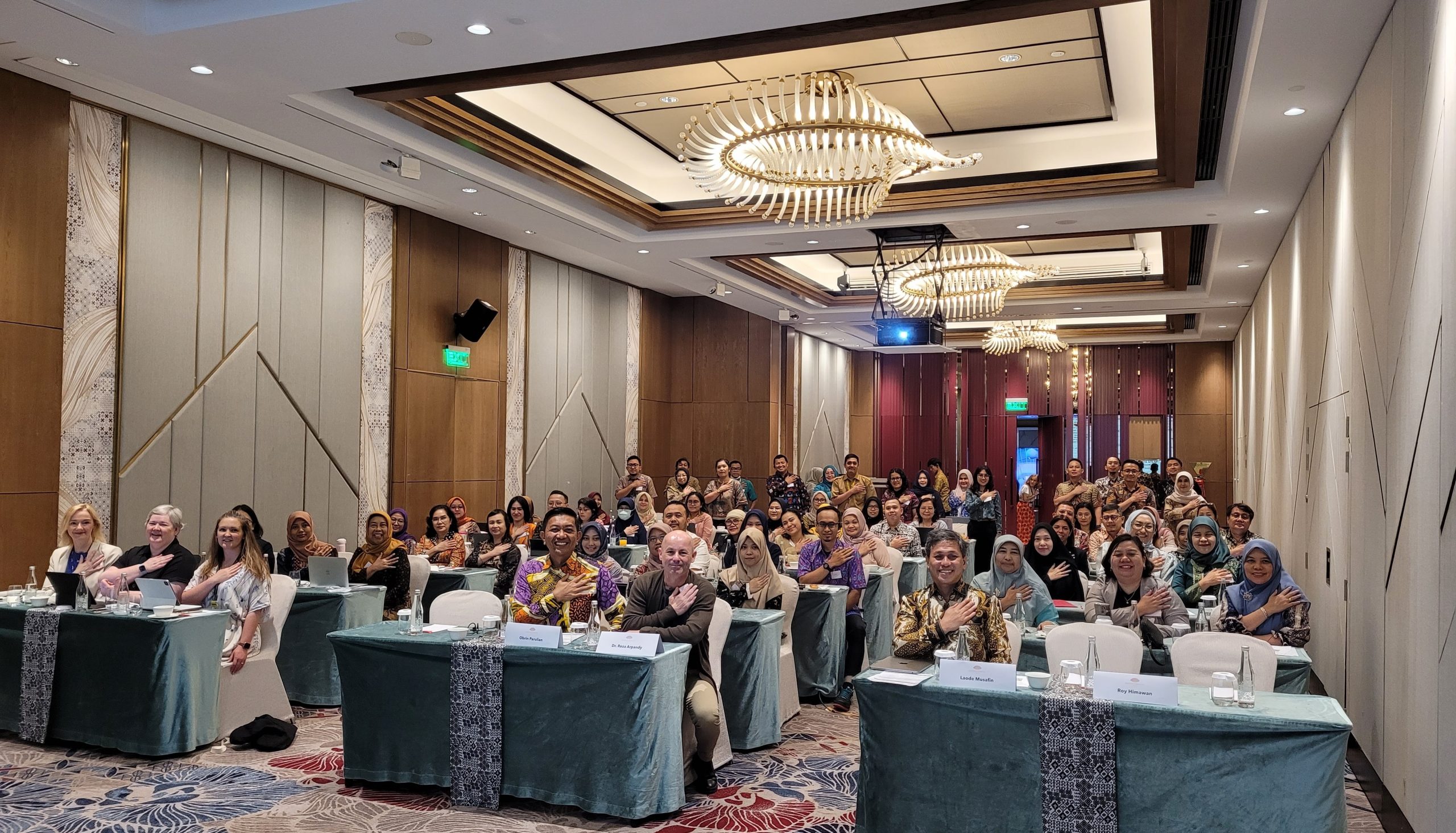
Strategic Advice
- Concise management report with recommendations on how Indonesia can improve Stroke outcomes with a focus on workforce, training and education.
- Indonesia – NHS England Stroke Care Workforce Collaboration Summary Meetings
- Vision Workshop for Rehabilitation Services in Indonesia
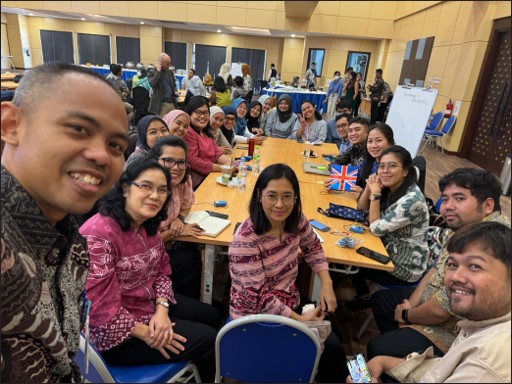
Implementation Support
- Technical working groups advising on Stroke-focused nursing and primary care curricula
- Rehabilitation Training in Jakarta and Palembang, July 2024 and Jakarta in April/May 2025
- Action Learning Sets supported participants to collaborate on challenges to support system change through shared learning and innovation strengthen local strategies for improving stroke care.
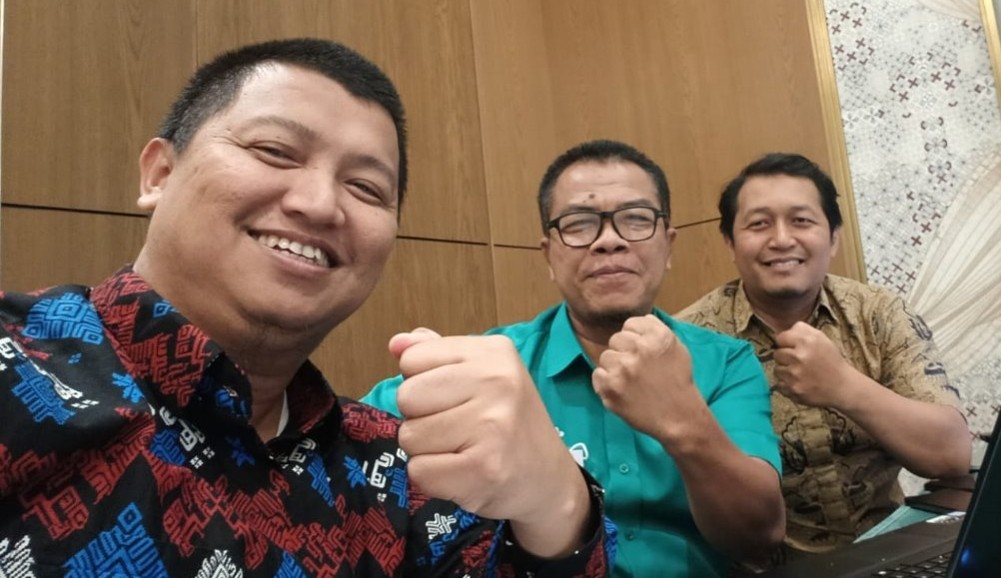
Collaboration Successes
Identified successes are set out in the diagram below. The most significant achievement is the updating of the Indonesian clinical stroke care guidelines. For the first time, and following discussions throughout the collaboration, the guidelines will be multi-professional and cover the full stroke pathway from prevention through acute to rehabilitation. These will replace the 2019 version which were focused on acute stroke care delivered by doctors. Partners including the Indonesian Ministry of Health and National Brain Centre are collaborating to develop these new guidelines which will be evidence-based and follow international best practice adapted for the local context as required.
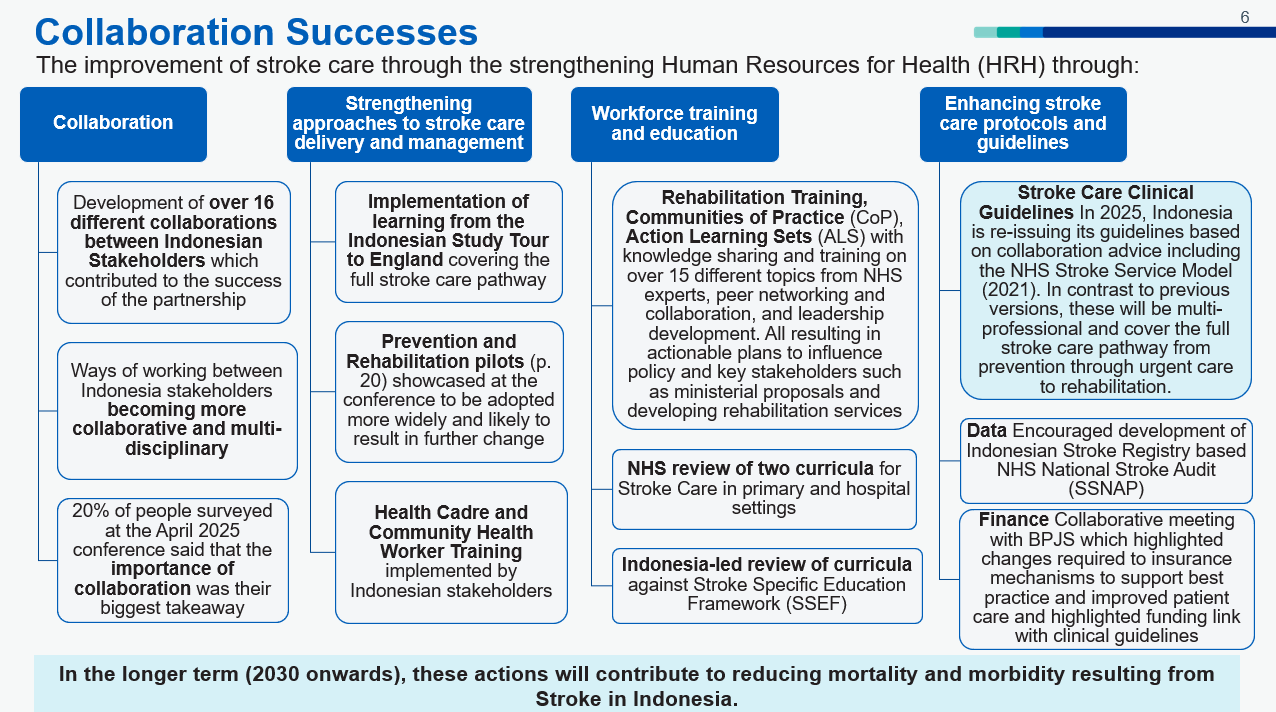
Contact
If you or your organisation are interested in collaborating with us, or would like more information on our consultancy services, then please do not hesitate to get in touch. We would be very happy to hear from you! Our email address is: england.tcc@nhs.net